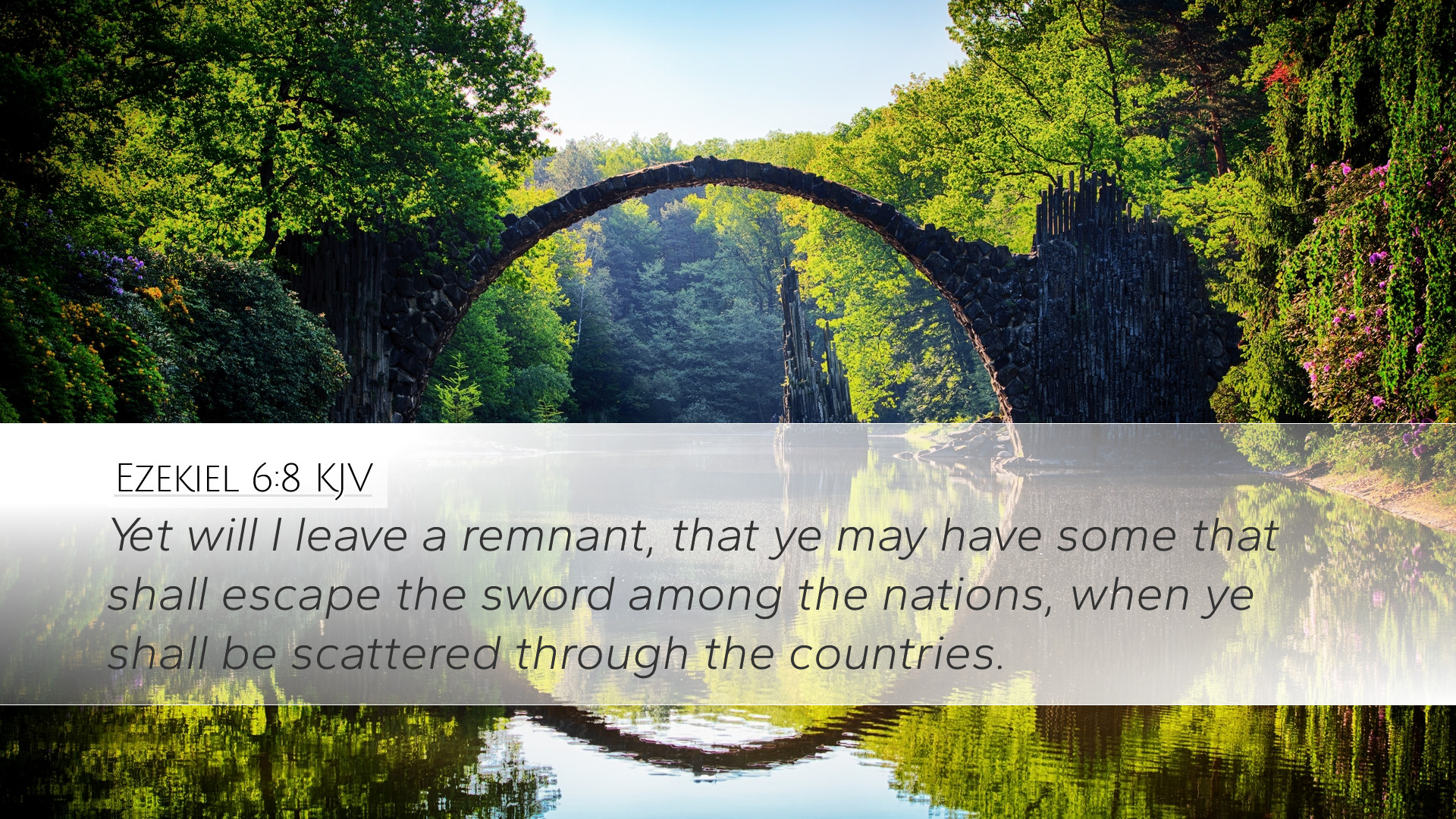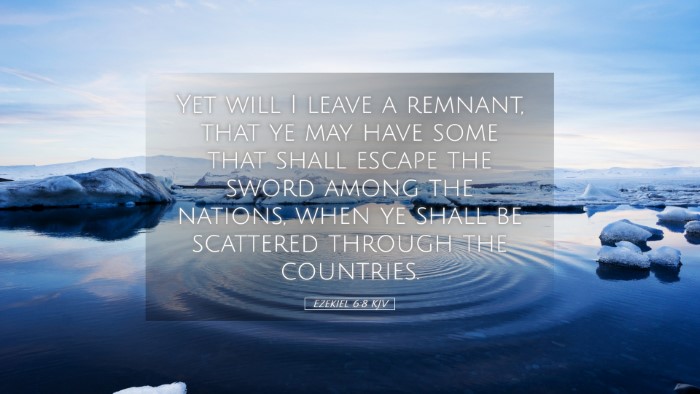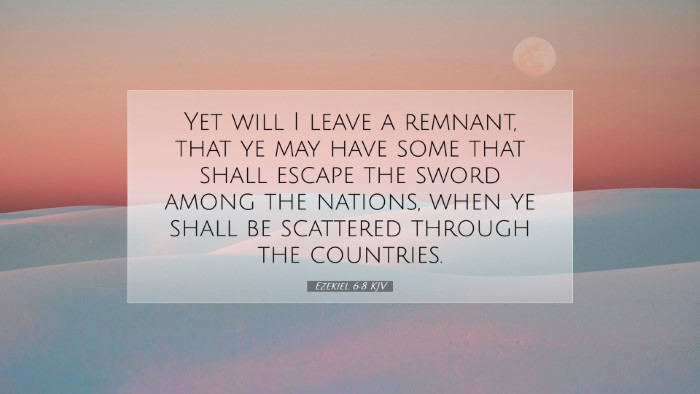Commentary on Ezekiel 6:8
Ezekiel 6:8 (ESV): "But I will leave some of you alive, and when you have among the nations some who escape the sword, and when you are scattered through the countries, "
Introduction
The prophecy in Ezekiel 6:8 serves as a point of transition within the broader context of Ezekiel's messages. Following a series of dire warnings against idolatry and impending judgment, this verse offers a glimmer of hope amidst desolation. This commentary compiles insights from notable public domain scholars to unfold its meanings for pastors, students, and theologians.
Theological Significance
As Matthew Henry notes, this passage's significance lies in the mercy of God being highlighted even in judgment. The phrase "I will leave some of you alive" suggests that God’s judgment is tempered by grace—a reminder that His ultimate purpose is restoration, not merely punishment.
Albert Barnes emphasizes that this remnant symbolizes God's covenant faithfulness. Despite Israel's failures, God's commitment to his people remains, showcasing his ability to preserve a remnant who will eventually return and reestablish the nation.
Adam Clarke provides insight into the implications of being "scattered through the countries." This scattering represents both the consequences of sin as well as the opportunity for transformation. It serves as a catalyst for those who escape to reflect upon their state and seek reconciliation with God.
Contextual Analysis
To fully grasp Ezekiel 6:8, it is essential to consider its context within the broader narrative of Ezekiel's vision. Ezekiel's ministry occurred during a time of national crisis, and this verse reiterates the dual themes of judgment and hope. The preceding verses articulate the devastation that will befall Israel due to its incessant idolatry and rebellion against God.
According to Henry, the declarations of impending judgment in the earlier chapters lay the groundwork for understanding the remnant. The imagery of destruction serves as a backdrop against which the mercy of God is starkly visible. God's willingness to preserve a remnant is a testament to His love, which calls back to covenant relationships.
Exegesis of Key Phrases
- "I will leave some of you alive": This phrase reflects God's sovereign choice to maintain a remnant. Contributors like Barnes highlight that this remnant would serve as the foundation for the future restoration of Israel.
- "Among the nations": The scattering among nations implies a loss of national identity and status for Israel. Clarke elucidates that while this signifies judgment, it also presents an opportunity for spiritual awakening and repurposing among the exiled Israelites.
- "Escape the sword": The sword symbolizes judgment, and the thrill of escape speaks to God’s providential care. Henry illustrates how divine mercy is extended even while judgment looms, marking the tension between condemnation and hope that runs throughout Scripture.
Implications for Contemporary Believers
This passage invites contemporary believers to reflect on the concepts of judgment and mercy in their lives. Modern readers are encouraged to recognize that God often works through difficulties with a vision of restoration in mind.
Henry underlines the necessity of repentance and turning back to God, affirming that even in our setbacks, God's readiness to forgive remains steadfast. Similar sentiments are echoed by Barnes, who reminds readers that God's grace is unextinguishable, attuned to offer solace even amid affliction.
Clarke’s interpretation emphasizes the faithful’s response to adversity. "Scattering" leads to environments where individuals can cultivate deeper reliance on God and provoke communal awakenings that may draw others to faith.
Conclusion
Ezekiel 6:8 encapsulates a profound message of hope amidst judgment. As we reflect on this verse, it becomes clear that God’s loving kindness prevails against the backdrop of human sinfulness. For pastors, students, and scholars, this text offers rich implications for understanding God’s nature, the consequences of sin, and the promise of restoration that echoes throughout salvation history.
Incorporating diverse insights from esteemed commentaries encourages comprehensive dialogue around this prophetic declaration. It affirms the tapestry of grace that weaves through narratives of judgment, ultimately revealing a God who desires a reconciled relationship with His creation.


